Business-to-consumer (B2C) marketers are making steady progress with content marketing as a key element of marketing strategy, according to a just-published annual content marketing study from MarketingProfs and Content Marketing Institute.
Fully 75% of B2C marketers characterize their organization as successful (extremely, very, or moderately) with content marketing, and 73% say they are much or somewhat more successful than a year ago, the study found:
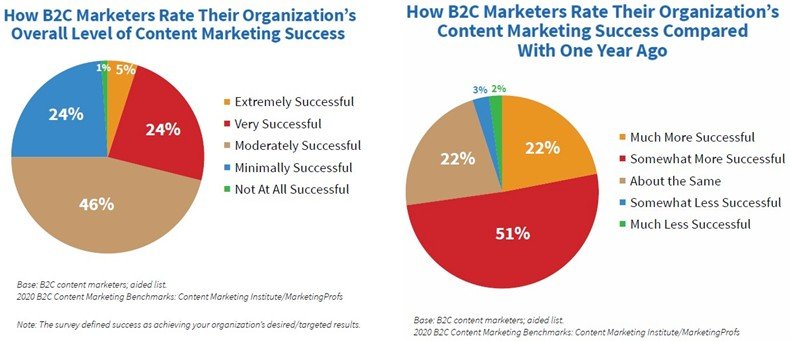
B2C marketers are using content marketing primarily to bring attention to their overall brand: The three most cited marketing goals in the last 12 months were creating brand awareness (84%), educating audiences (75%), and building credibility/trust (65%), according to the B2C Content Marketing 2020: Benchmarks, Budgets and Trends report.
The companion report on business-to-business (B2B) content marketing was published in late October.
Some key highlights from the B2C report:
- There is heavy reliance on email. Respondents rated email newsletters as their highest-performing content type for securing and nurturing leads, and a close second for converting leads. For building brand awareness, blog posts/articles and social media content tied for first.
- Most outsource at least one content marketing activity. Content creation is the most likely to be outsourced. Among the 55% of respondents who outsource, 80% outsource content creation, with content distribution a distant second (37%).
- 2020 priorities are conversions, content quality/quantity, and audience expansion. When presented with a list of seven possible content marketing priorities for 2020 and asked to select their top 3, respondents chose as follows: improve quality/conversion of audiences (50%), focus on content quality/quantity (50%), and increase the size of our audiences (40%).
- Facebook reigns. Facebook is both the top organic and the top paid social media platform B2C marketers use and the one they say generates the best content marketing results for their organization.
Here are additional highlights and charts from this year's B2C content marketing report:
Content Technology
The top three technologies B2C marketers use to assist with content marketing are social media publishing/analytics (84%), analytics tools (83%), and email marketing software (72%).
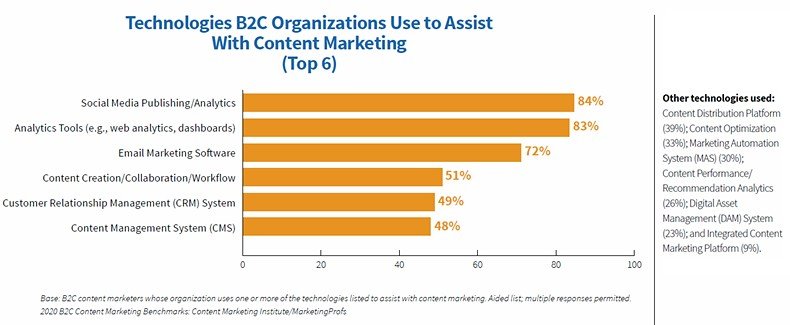
Content Team Structure
The most common reported structure is a small (or one-person) marketing/content marketing team serving the entire organization.
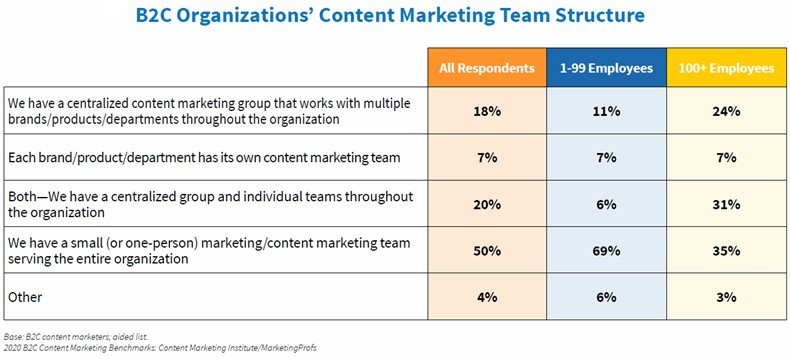
Content Creation & Distribution
B2C content marketers say 43% of the content they create is for audiences in the top of the funnel of the customer journey, compared with a combined 30% for the late-stage and post-sale stage content.
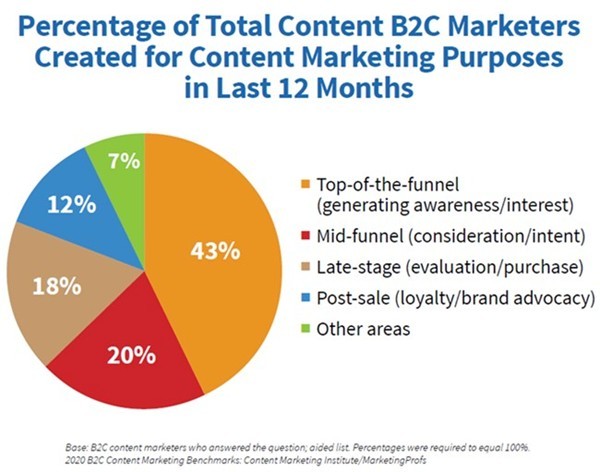
Asked which content types are the highest performing for their B2C organization for building brand awareness, securing leads, nurturing leads, and converting leads marketers responded as follows (top 2 or 3 for each category):
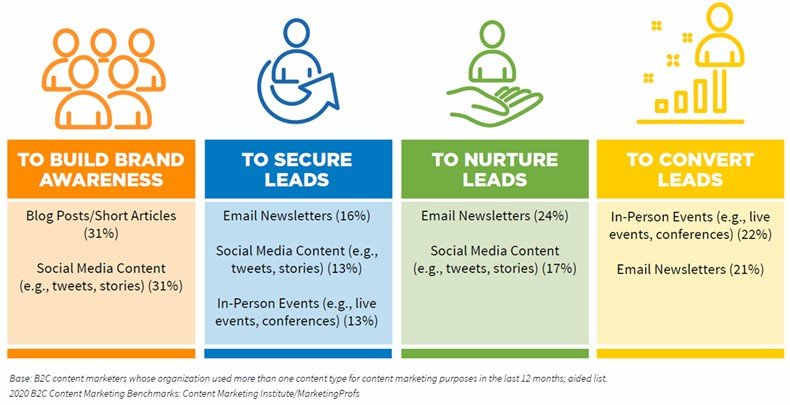
Fully 85% of B2C marketers use paid distribution channels for content marketing purposes; of that group, 89% use paid social media/promoted posts:
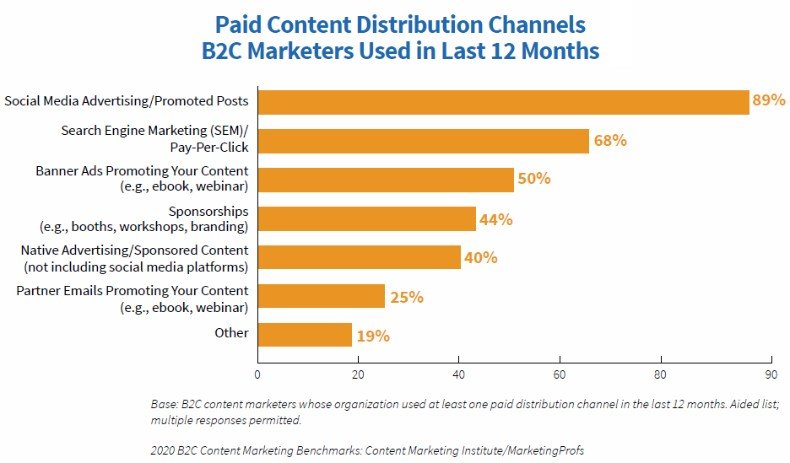
Content Marketing Metrics
The top metrics that B2C marketers use to measure content performance are conversions (81%), website traffic (80%), website engagement (79%), social media analytics (76%), and email engagement (75%):
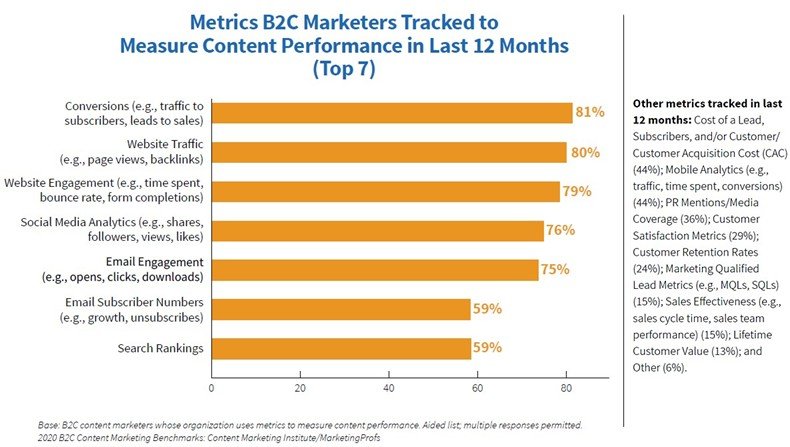
Content Budget
Six in ten B2C marketers expect their 2020 content marketing budget to be higher than it was in 2019:
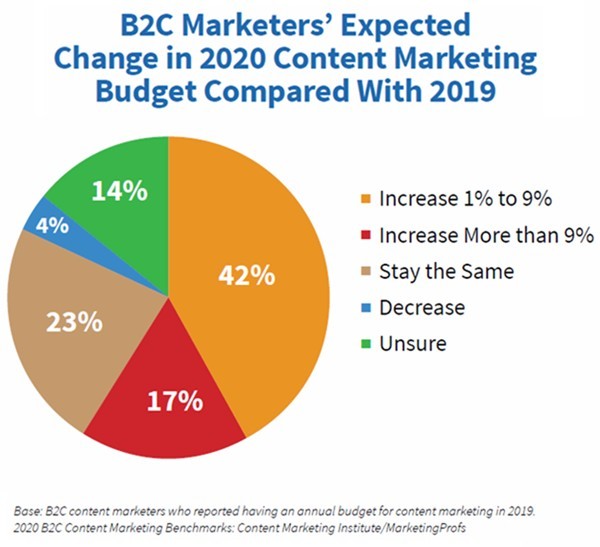
See and download the entire 2020 B2C Content Marketing Benchmarks, Budgets, and Trends report here:
About the research: The CMI/MarketingProfs 10th annual content marketing survey, from which the results of the B2C content marketing report were generated, was emailed to a sample of marketers using lists from Content Marketing Institute and MarketingProfs. A total of 1,798 recipients from around the globe—representing a full range of industries, functional areas, and company sizes—replied to the survey during June/July 2019. More than 250 respondents (256) indicated their organization is a for-profit company, primarily selling products/services to companies (B2C). This report presents the findings from the 179 B2C respondents who indicated (a) their organization has used content marketing for at least one year and (b) they are a content marketer involved with the content marketing function, and/or someone to whom content marketing reports.




